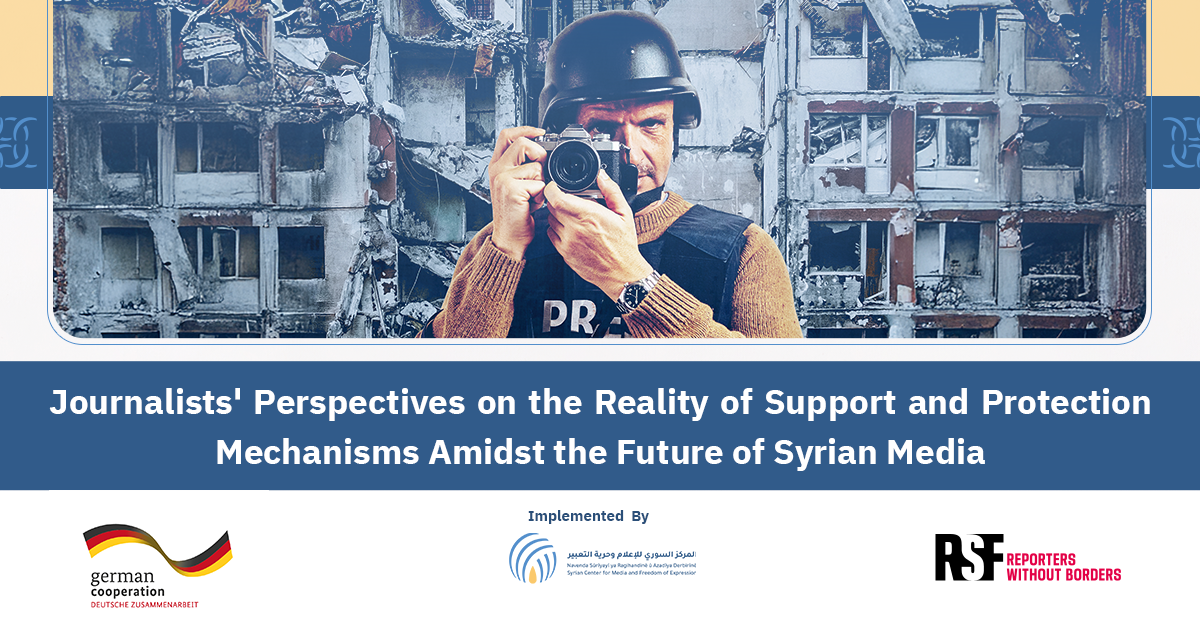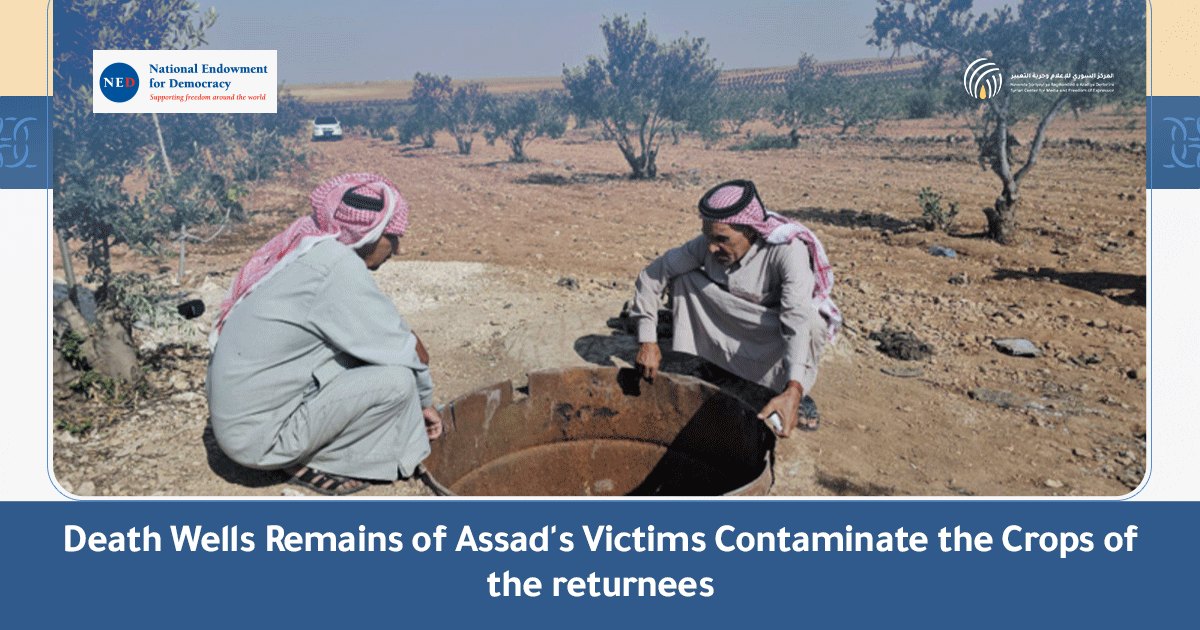Journalists’ Perspectives on the Reality of Support and Protection Mechanisms Amidst the Future of Syrian Media
This research study is part of the effort to support and develop professional Syrian media. Its aim is to assess the satisfaction level of male and female journalists with the support and protection mechanisms provided by SCM, and to analyse the most pressing current needs of media workers amidst the political and social transformations following December 2024. The study seeks to explore journalists’ future expectations regarding support priorities and the development required during the transitional phase.
To achieve these objectives, the study adopted a descriptive methodology, incorporating both quantitative and qualitative approaches. This involved:
- Online digital surveys for a sample of journalists who submitted requests for support and protection services between 2021 and 2024.
- Organizing focused discussion groups to explore the interpretations and perceptions of the views presented and to gain a deeper understanding of the results.
- Conducting in-depth individual interviews with a number of international partners from non-governmental organizations that support the protection of journalists. This allowed for a balanced understanding, combining the measurement of numerical indicators with the interpretation of qualitative contexts.
The main findings of the study indicate a high level of satisfaction with the support and protection services among most participants, especially in the areas of financial and legal support. However, the most significant gap emerged in the speed of response to requests and the coverage of living and logistical needs, which many considered insufficient for the actual reality.
The most urgent needs identified were:
- Livelihood support and securing housing.
- Safe exit and protection from threats.
- Specialized professional training, particularly in the fields of Artificial Intelligence (AI), Digital Security, Data Journalism, and Investigative Journalism.
Furthermore, no statistically significant differences in satisfaction levels appeared among different categories of journalists (in terms of experience, gender, or educational background). The expectations of most participants were that the future of media freedom in Syria would remain within the framework of conditional, relative freedom, accompanied by wide caution against adopting optimistic scenarios.
The study’s recommendations concluded with a set of proposals directed at:
- The Syrian Center for Media and Freedom of Expression (SCM): Developing the communication system with journalists, enhancing specialized training, opening diverse secure channels, and expanding the use of technology and AI.
- Decision-Making Circles in Syria: Enacting laws guaranteeing media freedom, strengthening the legal environment for the protection of journalists, and involving stakeholders (including the community of journalists and civil society organizations) in drafting laws.
- International and Regional Supporting Organizations: Emphasizing the importance of increasing financial allocations, providing accessible grants and financial support services for journalistic projects, supporting digital security programs, and being gender sensitive.
The conclusion highlights that continued investment in the Syrian media infrastructure is an essential condition for establishing a more transparent and accountable environment during the transitional phase. Therefore, providing multi-dimensional support to Syrian journalists is an urgent necessity that cannot be delayed. The importance of strengthening international and regional advocacy campaigns to ensure the flow of financial resources and expand the scope of funding dedicated to protecting independent media and safeguarding freedom of expression is also emphasized.
The commitment of all concerned parties, especially international partners and policymakers, to implement these recommendations will contribute to building a media environment capable of performing its oversight and developmental role efficiently, thereby advancing the path of democratic transition and establishing a more stable and just phase in Syria.





